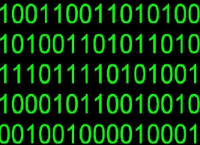Is a Computer Language Copyrightable?
 Well, is it? Oracle says, “Yes.” Google says, “No!” What you write (the code of a program written in a language) is copyrightable. But, what about the computer language itself? That is what Google and Oracle will be hashing out in court starting this coming Monday! Stay tuned!
Well, is it? Oracle says, “Yes.” Google says, “No!” What you write (the code of a program written in a language) is copyrightable. But, what about the computer language itself? That is what Google and Oracle will be hashing out in court starting this coming Monday! Stay tuned!
Oracle thinks you can copyright a programming language, Google disagrees
“Oracle’s case against Google has evolved primarily into a copyright infringement suit over the past several months, and with the full trial scheduled to begin this coming Monday, the court is making an effort to get down to the nuts and bolts of copyright law. The judge issued an order last week requiring that both Google and Oracle provide their respective positions on a fundamental issue in the case:
‘Each side shall take a firm yes or no position on whether computer programming languages are copyrightable.’
That’s right, the judge is asking the lawyers representing two hugely successful software companies to commit to potential limits on software protection. And they’ve both now provided their responses. Google has this to say on the subject:
‘NO, COMPUTER PROGRAMMING LANGUAGES ARE NOT COPYRIGHTABLE. GOOGLE HAS NEVER TAKEN ANY OTHER POSITION.’
Google then goes on to explain that ‘a given set of statements or instructions may be protected, but the protection does not extend to the method of operation or system — the programming language — by which they are understood by the computer.’ Google is arguing that a computer language is ‘inherently a utilitarian, nonprotectable means by which computers operate’ and merely provides the structure, selection and organization of the software.
Under US copyright law, a general idea is not itself protectable, but an original and creative expression of the idea can be. Under the umbrella of this legal tenet, Google is proposing that a programming language is just an idea or utilitarian tool, while the actual software created through this medium of programming language is the expression that can be protected.”